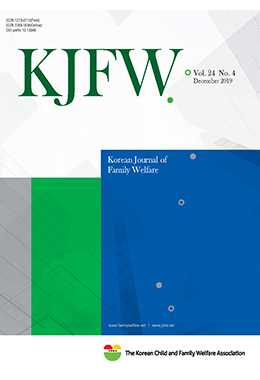Objective: The present study pursued the understanding of structural relationships among children’s time spent on the mobile internet, smartphone dependency, and a series of ecological variables including leisure activities and family ritual experience. Methods: A total of 185 5th and 6thgrade students from elementary school sin Seoul, Incheon and Gyeonggi provinces were surveyed. The conceptual model was examin edusing Structural Equation Modeling. Results: The results are as follows. First, the correlation analysis revealed that the children of later birth order and children of dual-earner families showed a greater amount of mobile device usage. Second, the results showed that greater family leisure activities predicted a lower level of smartphone overdependence among children via the mediation of mobile device usage time. Third, increased family ritual experiences also predicted less smartphone overdependence via the mediation of less mobile device usage time. Conclusion: The findings suggest that family education and work-family balance programs that ensure family members share leisure activities and family ritual experiences can be effective in reducing problems related to smartphone overdependence among young children.




